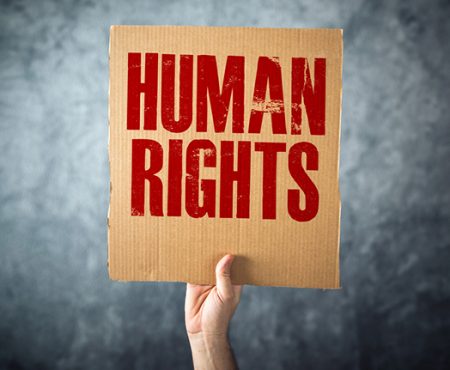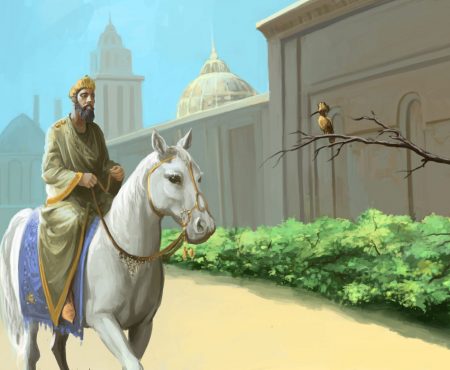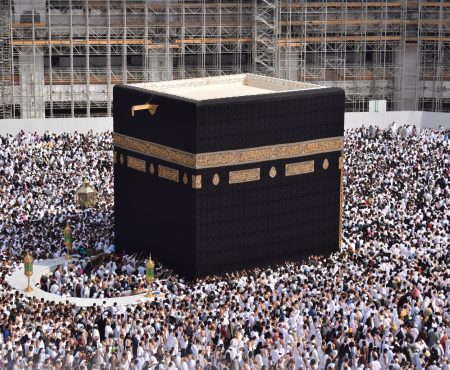Respect for one’s parents is a matter that is highly stressed in Islam. In fact, in a countless amount of verses in the Qur’an, placing virtue on one’s parents is placed immediately after commands to worship no other deity but God.
“Worship Allah and associate nothing with Him, and to parents do good, and to relatives, orphans, the needy, the near neighbor, the neighbor farther away, the companion at your side, the traveler, and those whom your right hands possess. Indeed, Allah does not like those who are self-deluding and boastful.” (4:36)
“And [recall] when We took the covenant from the Children of Israel, [enjoining upon them], ‘Do not worship except Allah; and to parents do good and to relatives, orphans, and the needy. And speak to people good [words] and establish prayer and give zakah.’” (2:83)
The Prophet Muhammad (PBUH) was also quoted by his companions to have said, “Shall I tell you what are the greatest of major sins? … To attribute partners to God and to be disrespectful towards one’s parents.”
While many people may understand and even appreciate the amount of verses from The Qur’an and sayings from The Prophet (PBUH) that are dedicated to respecting and caring for one’s parents, some may wonder why such emphasis is placed on the subject.
Although there are various rationales behind God’s commands, not all of them are apparent to us. With that in mind, we will be focusing on some that are known to us in regards to the subject.
Many people may overlook the amount of hardships their parents go through in raising them. Despite many of their shortcomings, most parents try their best in raising their children, with many of them suffering various difficulties and sacrificing a lot in order to provide a better life for their offspring. For mothers, dealing with the difficulties of pregnancy, childbirth, the breastfeeding phase, and raising their child throughout their adolescence take an extreme toll on their mental and physical well-being. As for fathers, enduring the day to day obstacles in providing for their family and securing a bright future for their children is no easy task either.
The Qur’an acknowledges, “And We have enjoined upon man [care] for his parents. His mother carried him, [increasing her] in weakness upon weakness, and his weaning is in two years. Be grateful to Me and to your parents; to Me is the [final] destination.” (31:14)
In this verse, weakness upon weakness refers to the difficulties and hardships involved in childbearing.
For those who have yet to experience parenthood, it may be difficult to understand what it feels like to bear a child, how dear children are to their parents, and how far most parents are willing to go to ensure a proper livelihood for their kids. The pain is not limited to the early years of childhood, nor is the love and affection that parents feel towards their offspring. With all that they go through, they don’t expect praise or anything else in return.
As many may notice, while The Qur’an enjoins goodness, gratitude, and virtue towards one’s parents, it places a particular emphasis on the mother, which may be in part, due to the hardships endured during pregnancy, childbirth, and the first two years.
“And We have enjoined upon man, to his parents, good treatment. His mother carried him with hardship and gave birth to him with hardship, and his gestation and weaning [period] is thirty months. [He grows] until, when he reaches maturity and reaches [the age of] forty years, he says, ‘My Lord, enable me to be grateful for Your favor which You have bestowed upon me and upon my parents and to work righteousness of which You will approve and make righteous for me my offspring. Indeed, I have repented to You, and indeed, I am of the Muslims.’” (46:15)
There is a well-known narration from The Prophet Muhammad (PBUH) in regards to this verse in which a man asks The Prophet (PBUH), “Oh Messenger of God, who among the people is most deserving of my good companionship?” The Prophet (PBUH) replied, “Your mother.” The man asked, “Then who?” The Prophet replies again, “Your mother.” The man asked again, “Then who?” The Prophet (PBUH) replied once more, “Your mother.” After asking for a fourth time, The Prophet (PBUH) replied, “Your father.”
The verse immediately following the previous one refers to those who carry the attributes mentioned in verse 15, “They are those from whom We accept the best of that which they have done and over whose evil deeds We pass. [They] will be among the inhabitants of Paradise—the true promise that they were promised.” (46:16)
In other words, God promises to overlook the sins of those who treat their parents well, accepts the best of their actions, and makes them the inhabitants of paradise. With such a high return promised for being virtuous to one’s parents, not only does it prompt most people to respect their parents more than before, the verse shows how seriously the matter is taken from an Islamic standpoint.
On the other hand, the Qur’an also warns not so say so much as “Ugh” to one’s parents and to treat them with honor and respect at all times.
“Thy Lord decrees that you worship none but Him, and be virtuous to parents. Whether one or both of them reaches old age, say not to them “Ugh!” nor chide them, but speak unto them a noble word.”
The term “ugh” can refer to one’s expression of annoyance, complaint, disgust, or any other harsh or dismissive sentiments. The verse also mentions the aging of parents, instructing people to speak to their parents in a dignified manner, especially as they age. Just as parents were once patient with one’s needs and dependencies as a child, it only seems fair to practice tolerance and patience towards the needs of one’s parents as they age.






All comments (0)